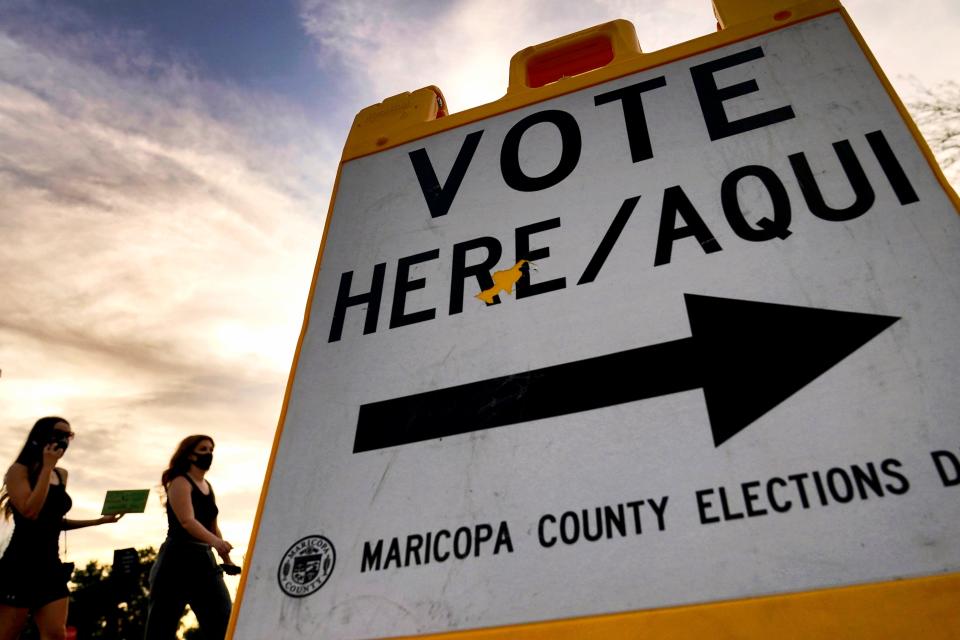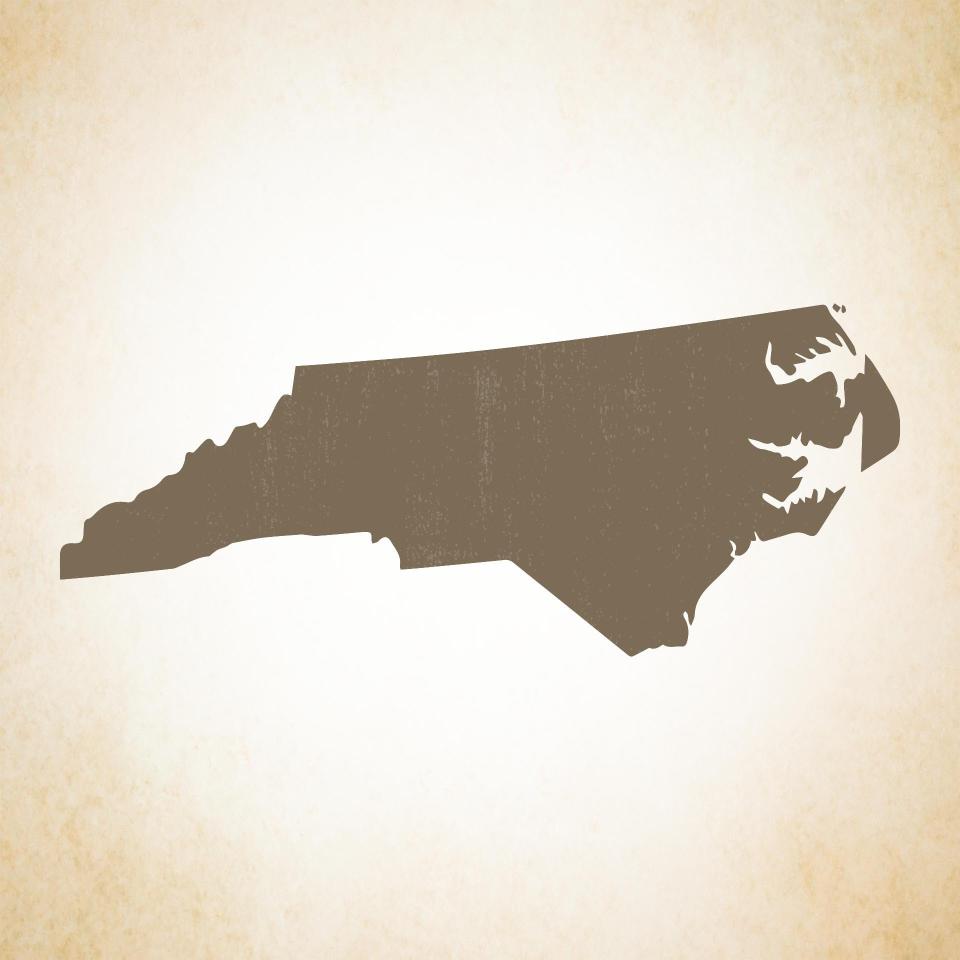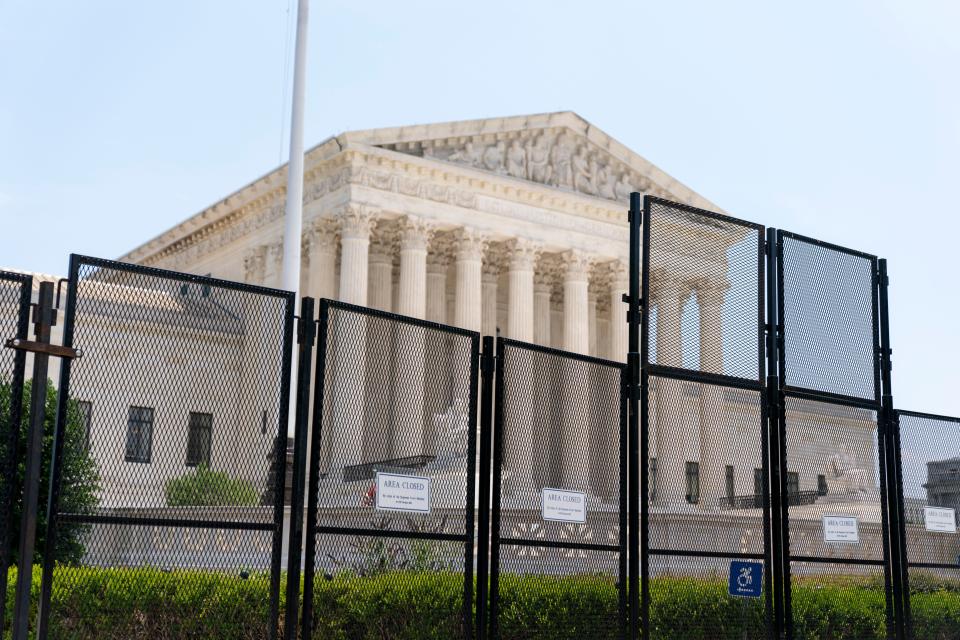Here's how the Supreme Court's decision in a major election case could affect voting in 2024
WASHINGTON – On the final day of its historic 2021-2022 term, the Supreme Court agreed to hear a significant case from North Carolina about how states set the rules for federal elections. Some groups worry the ruling will fundamentally alter elections.
What's the case about? On the surface, the case is about North Carolina's congressional districts. A state court stepped in to block the redistricting proposed by the legislature and now GOP state lawmakers in the Tar Heel State are suing.
What are the potential implications? A ruling could have an impact far beyond North Carolina if the Supreme Court decides that state legislatures should be able to set federal election rules without review by other entities, including state courts.
What's the "independent state legislature" doctrine? It's a legal theory thatasserts the Constitution gives state legislatures control over running federal elections, with oversight only from Congress.
Has the Supreme Court ruled on this before? In fact, the nation's highest court tackled some of the same questions raised in the case just seven years ago. But that was before President Donald Trump handed conservatives a 6-3 advantage.
When will the court rule? Arguments are expected in the fall with a decision likely to land next year, after the 2022 midterm election but before the 2024 presidential vote. The appeal will be among the most closely watched in the next term.
Here is what we know about the North Carolina case and its implications:

What's the Supreme Court election case about?
At the center of the dispute was a map of congressional districts proposed by the North Carolina legislature that would have given Republicans an advantage. The state's supreme court struck down the map and a lower court crafted a new one. The state Republican lawmakers whose map was shot down appealed to the Supreme Court.
It's one of several challenges that have cropped up across the nation following states' congressional redistricting, which happens every decade after the census.

What's are the implications for the 2024 election?
The implications for future elections are potentially enormous. North Carolina Republicans aren't only asking the Supreme Court to toss out the court-drawn map. They're asking the justices to embrace a new fundamental legal principle: That state courts – as well as governors, state election officials and, in some cases, federal courts – shouldn't have any role in reviewing voting laws in the same way that they review other laws.
That would remove virtually every check on state legislatures' power when it comes to setting the rules for federal elections except for laws passed by Congress.

What's the 'independent state legislature' doctrine?
Conservatives are relying on what's known as the independent state legislature doctrine. That legal theory is based on the wording in the Constitution's election clause.
"The Times, Places and Manner of holding Elections for Senators and Representatives, shall be prescribed in each State by the Legislature thereof," Article I, Section 4 of the Constitution reads. "but the Congress may at any time by Law make or alter such Regulations, except as to the Places of chusing Senators."
Conservatives say the plain meaning of the founding document is that state legislatures – and only state legislatures – have the power to set those rules. That reading of the clause would cut governors, election officials and state courts out of the process.
Has the Supreme Court ruled on this before?
The Supreme Court in 2015 rejected the view that the term "legislature" in the Constitution is so narrowly defined. Arizona lawmakers sued over an independent commission that was created to draw that state's congressional districts. The commission, the lawmakers claimed, violated the elections clause. A 5-4 majority of the Supreme Court ruled that the framers had a more expansive definition of the word.
But that was a different court. The majority in the Arizona case included the court's liberal bloc – then four strong – along with Associate Justice Anthony Kennedy, a swing vote. Today, conservatives have a 6-3 majority and at least four have already indicated varying levels of interest in revisiting the issue.
When will the court rule?
The earliest the Supreme Court could hear oral arguments is in the fall, when the justices return to Washington to start the 2022-2023 term. Usually the most closely watched cases are decided at the end of the term, which is generally in late June.
If the high court holds to that practice, whatever it decides won't affect the November midterm elections, in which control of Congress is up for grabs. However, the case is very likely to be decided by the time voters head to the polls in 2024.
This article originally appeared on USA TODAY: Supreme Court wades into voting: Breaking down a major elections case

